December 2, 2025
Navigating Higher Education: Support and Opportunities for Autistic Students
As awareness and understanding of autism spectrum disorder (ASD) grow, colleges and universities across the United States are expanding their support systems to accommodate autistic students. These institutions recognize the unique challenges and strengths of neurodiverse learners and offer specialized programs, resources, and services designed to foster academic success, social development, and independence. This article explores the broad landscape of college programs for autistic students, highlighting behavioral therapy approaches like Applied Behavior Analysis and showcasing diverse support options available nationwide. Whether through social skills coaching, academic mentoring, or tailored living arrangements, these initiatives aim to provide autistic students with the tools they need to thrive in higher education and beyond.
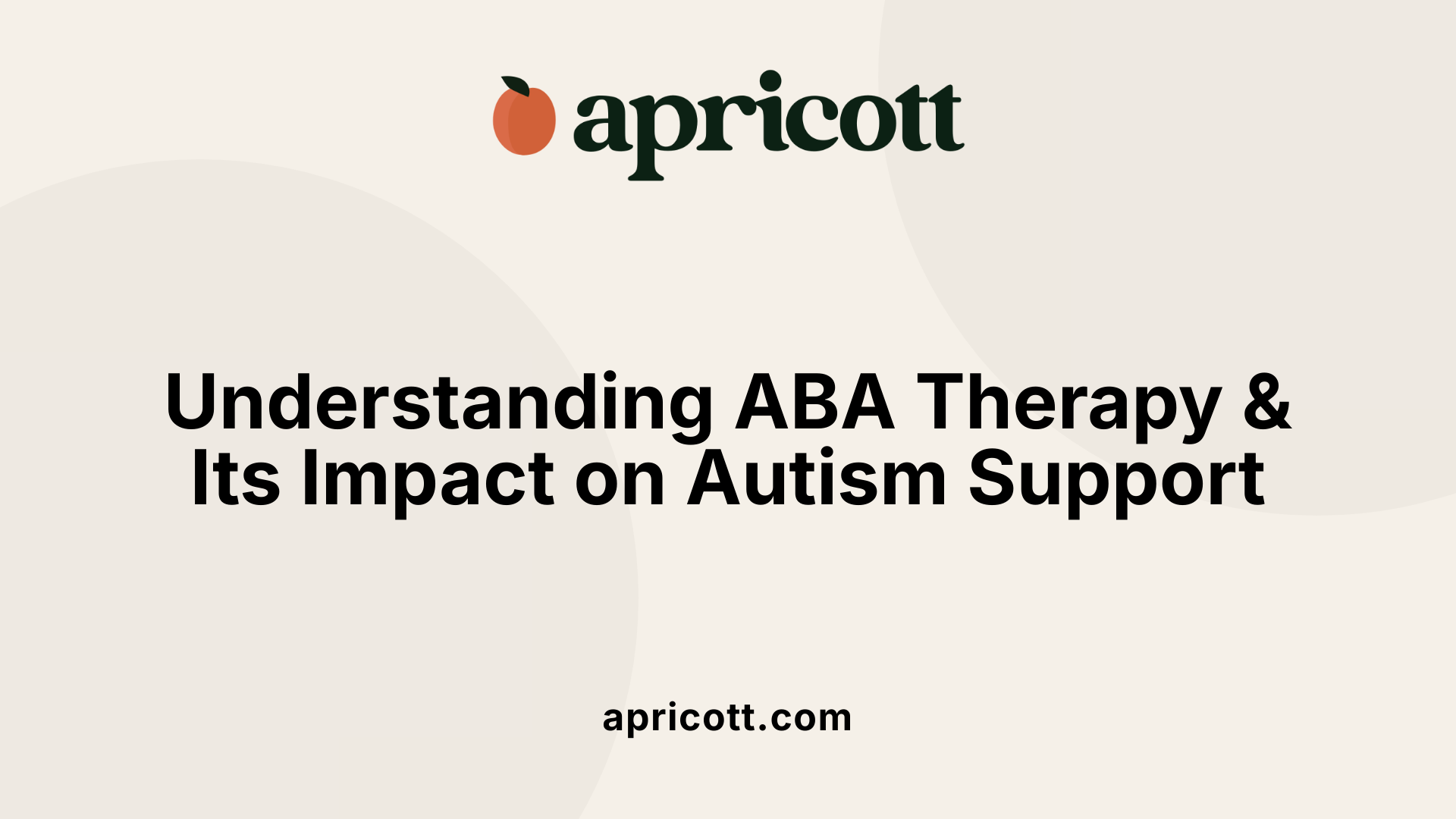
Applied Behavior Analysis (ABA) therapy is a science-driven method aimed at understanding and improving behaviors. It focuses on increasing positive behaviors like communication and social skills, while reducing challenging behaviors. This approach is widely used to help individuals with autism develop essential abilities.
ABA therapy is grounded in learning theory, emphasizing the relationship between behavior and the environment. Key principles include positive reinforcement, where desired behaviors are encouraged through rewards, and prompting, which guides individuals toward correct responses. Therapists carefully analyze behavior patterns to effectively promote skill acquisition.
Techniques commonly employed in ABA include discrete trial training, which breaks skills into small, manageable steps taught systematically. Sessions are structured and individualized, often involving one-on-one interaction with a Board Certified Behavior Analyst (BCBA). Other methods include natural environment teaching and task analysis, which help generalize skills to everyday situations.
ABA therapy has been extensively researched since the 1960s. Scientific studies support its effectiveness in improving communication, social interaction, academic skills, and self-care for people with autism. Early and consistent treatment usually results in better developmental outcomes. ABA remains one of the most widely endorsed therapies for autism by healthcare professionals and organizations alike.

ABA (Applied Behavior Analysis) therapy assists individuals with autism by utilizing scientifically validated techniques focused on teaching new skills and modifying behaviors. This therapy uses positive reinforcement to encourage desired behaviors and carefully analyzes the factors influencing actions. Personalized to each individual's needs, ABA sets clear, measurable goals, often under the guidance of a Board Certified Behavior Analyst (BCBA).
The primary goals of ABA therapy include enhancing communication, improving social skills, promoting self-care, and fostering independence in daily living activities. Research indicates that intensive, long-term ABA therapy can improve cognitive abilities and language development, enabling individuals with autism to participate more fully in everyday social and educational environments.
ABA targets a broad range of vital skills such as:
ABA therapy systematically reinforces positive behaviors while reducing negative or harmful ones through consistent, data-driven strategies. Behavior plans are tailored to address the unique needs of each individual, ensuring progress is measurable and meaningful.
By focusing on practical life skills and social abilities, ABA therapy significantly improves quality of life. It equips individuals with autistic spectrum disorders to handle everyday challenges, navigate social settings, and engage more confidently with their communities, promoting greater autonomy and inclusion.

ABA therapy is delivered by skilled professionals trained to support individuals with autism spectrum disorder. The primary providers are Board Certified Behavior Analysts (BCBAs) who develop personalized treatment plans based on detailed behavioral assessments. Registered Behavior Technicians (RBTs) often implement these plans under BCBA supervision. These services can be provided across various environments, including homes, clinics, schools, or community settings, allowing flexibility tailored to each individual's needs.
Many providers operate within specialized clinics or organizations familiar with autism support services. These professionals not only deliver therapy but also assist families in navigating insurance coverage and coordinating programs to maximize the therapy's effectiveness. When selecting a provider, families are encouraged to inquire about the qualifications of staff, levels of supervision, and the therapy approaches used to ensure quality care.
ABA therapists usually hold relevant certifications like Registered Behavior Technician (RBT) or are credentialed as Board Certified Behavior Analysts (BCBAs). To become a BCBA, candidates must generally hold a master's degree in applied behavior analysis or a related field, complete 1,500 to 2,000 hours of supervised fieldwork, and pass the Behavior Analyst Certification Board (BACB) examination.
Many states require licensure to practice ABA, which entails meeting education and supervised experience criteria as well as adherence to an ethical code of conduct. Strong competencies in behavioral assessment, designing intervention plans, data-driven progress monitoring, and effective communication are vital skills that ensure therapists provide impactful and ethical care.
ABA therapy can be administered in a variety of settings to best meet the needs of clients. Common locations include:
This versatility in settings allows ABA therapy to adapt to individual lifestyles and goals, fostering greater success and independence for those on the autism spectrum.

Many post-secondary institutions across the United States provide specialized programs aimed at supporting autistic students to thrive academically and socially. These programs range from foundational academic support and behavioral coaching to comprehensive assistance that includes residential and vocational services.
Support programs typically include several components:
Costs vary widely depending on the program's scope and institution. For instance:
| Institution | Program Name | Approximate Cost | Highlights |
|---|---|---|---|
| University of Alabama | UA-ACTS | $3,000 per semester | Academic and behavioral support |
| Arkansas State University | EduCare | No additional cost | Designed for online degree students |
| Nova Southeastern University | Access Plus | $8,000 per semester | Includes academic, residential, and vocational support |
| University of Delaware | Spectrum Scholars | Grant-funded (free) | Coaching, mentoring, and career support |
Many institutions also offer free or grant-supported services to reduce financial barriers.
Notable programs include:
These diverse offerings illustrate a strong nationwide commitment to fostering inclusive and supportive environments for students on the autism spectrum.
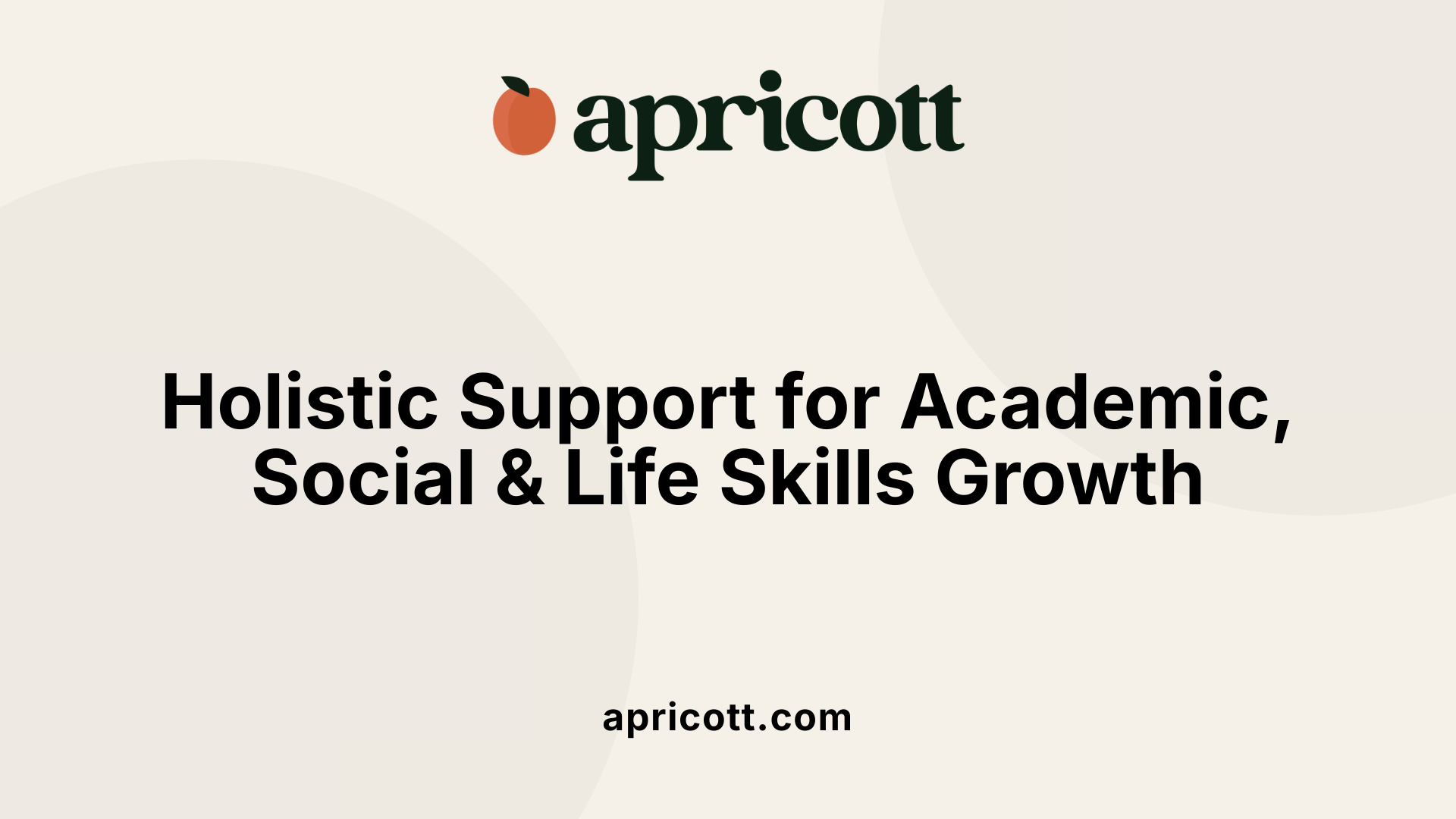
Many universities provide specialized academic coaching tailored specifically for students on the autism spectrum. Programs like the University of Alabama's UA-ACTS and Drexel University's DASP emphasize improving study skills and adapting to college demands through one-on-one coaching and advisor support. Rutgers University’s Asperger’s Disorder College Program offers campus orientation and classroom accommodations, helping students manage academic challenges confidently.
Social interaction is a crucial focus of these programs. Institutions such as the University of Florida with SOCIAL Gators and the University of North Florida's THRIVE program provide targeted social skills training. Peer mentoring is a prevalent feature, seen in programs like Drexel’s peer mentor training and Midwestern State University’s residence-based peer assistance. These initiatives facilitate friendships, improve communication skills, and foster a supportive social environment.
Supporting independence is addressed through life skills and vocational coaching. Nova Southeastern University’s Access Plus program delivers comprehensive residential and vocational services, guiding students in managing their personal lives and preparing for careers. The University of West Florida’s Argos for Autism and University of Delaware’s Spectrum Scholars program also focus on career development and responsible living.
Emotional and crisis support rounds out the network of services. Golden West College’s Comprehensive Autism Program (CAP) includes crisis counseling alongside social-emotional support, while Eastern Michigan University offers nutritional therapy and social interaction opportunities. Overall, programs use individualized support plans to combine life skills development with mental health resources, ensuring that students are well-equipped to thrive in higher education.
These collective services—academic coaching, social training, peer mentoring, and independent living support—create a holistic framework helping autistic students successfully transition into and navigate university life.

The University of Alabama's UA-ACTS program is designed to provide comprehensive academic and behavioral support to students on the autism spectrum. Its primary focus is on improving study skills and promoting effective interaction within the campus community. This program aims to equip students with autism the tools necessary to succeed academically while developing independence.
UA-ACTS operates as a semester-based program, costing $3,000 per semester. This investment provides students access to a range of personalized services tailored to their unique needs. The structure allows continuous support throughout each academic term, ensuring consistent progress and assistance.
The services provided by UA-ACTS include targeted academic coaching designed to enhance study habits and organizational skills. Additionally, the program fosters campus engagement by encouraging positive social interaction and communication skills, aiding students in navigating the college environment confidently.
Beyond academics, UA-ACTS emphasizes independence by helping students develop self-advocacy and life skills necessary for thriving in higher education and beyond. The overarching goal is to empower students with autism to become self-reliant individuals who excel both academically and socially during their university journey.
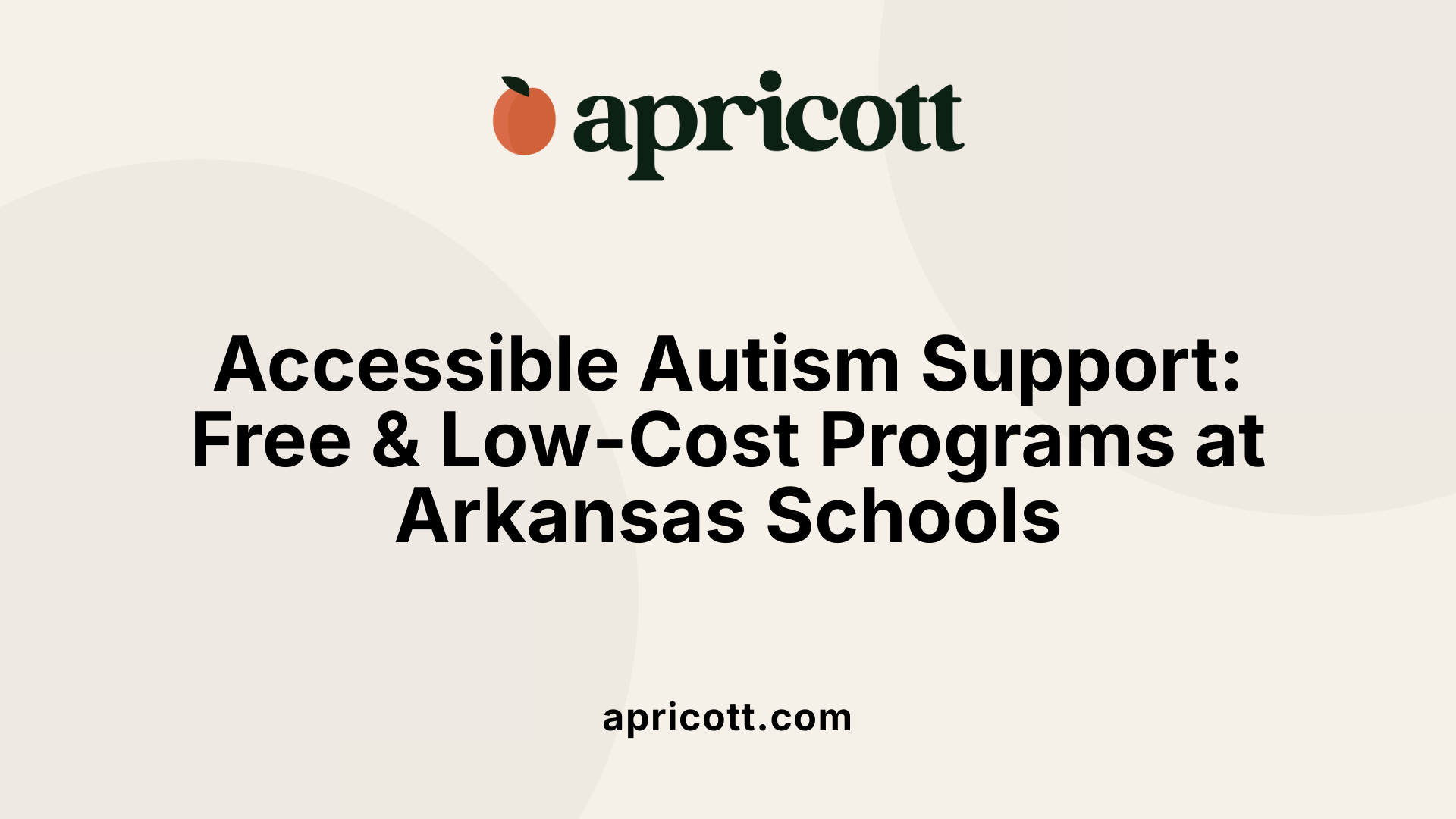
Arkansas State University's EduCare program provides specialized support for students with autism who are pursuing online degrees. This program is designed to enhance academic success and provide the necessary resources for remote learners, ensuring they don't miss out on tailored assistance despite distance learning.
One of the standout features of Arkansas State University's EduCare is that it incurs no additional costs for students, making it an accessible option for those who may face financial challenges. Similarly, the University of Arkansas offers its Autism Support Program without imposing extra fees, helping students focus on their education without the stress of added expenses.
The University of Arkansas has crafted its Autism Support Program specifically for students with high-functioning autism and related conditions. The program aims to address the unique needs of these students by providing targeted assistance that promotes academic achievement and social integration within the campus community.
Making support programs affordable or free allows more students on the autism spectrum to access vital resources. These programs encourage independence, improve academic performance, and help develop social skills essential for college success. By reducing financial barriers, institutions empower students to thrive in both their studies and campus life.
| University | Program Name | Cost | Focus Areas |
|---|---|---|---|
| Arkansas State University | EduCare | No additional cost | Support for online degree students, academic success |
| University of Arkansas | Autism Support Program | No additional cost | Tailored support for high-functioning autism, social integration |
These examples highlight how accessible, low-cost programs provide inclusive support, setting a positive example for institutions nationwide.
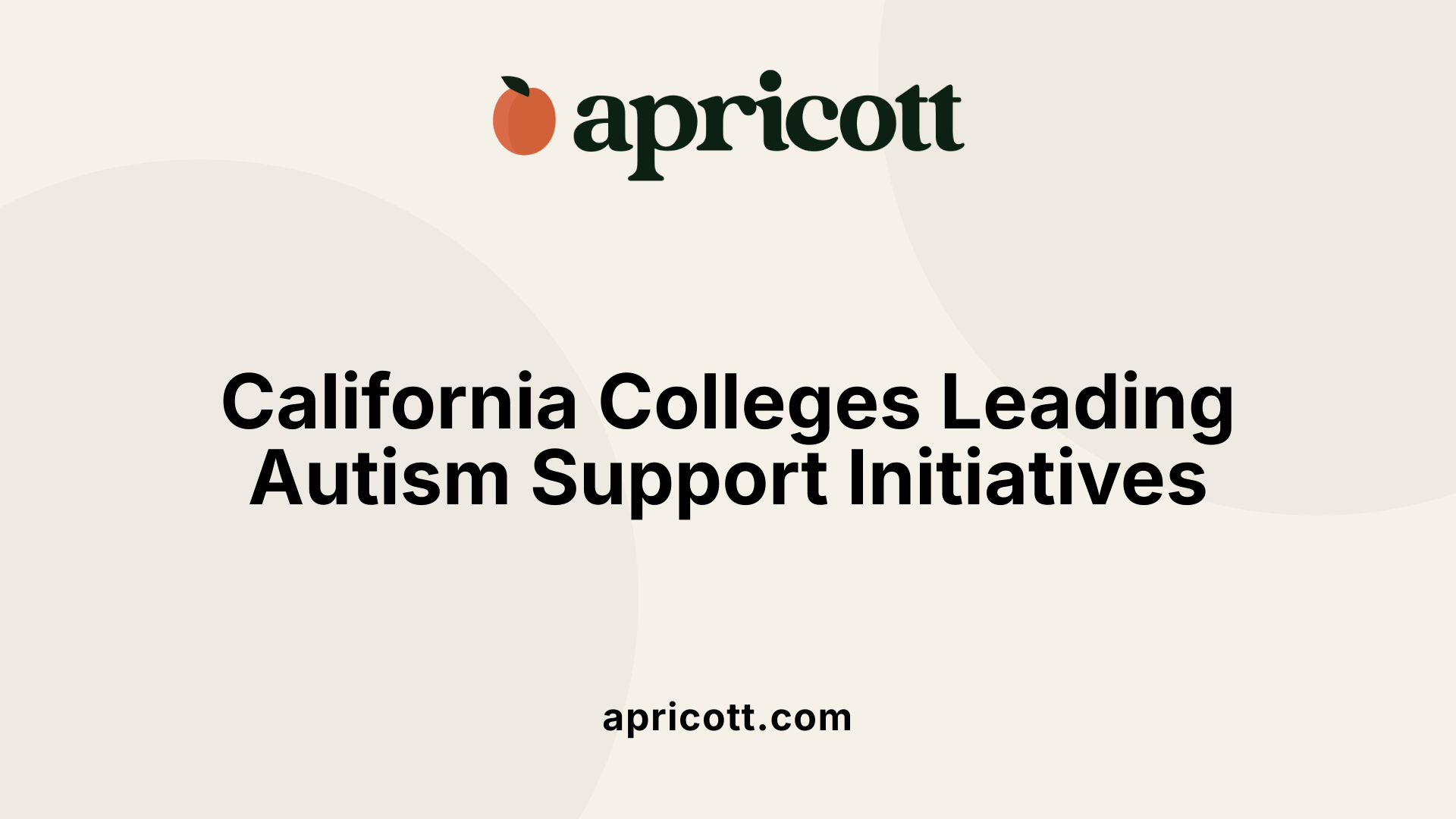
Golden West College in California offers the Comprehensive Autism Program (CAP), a well-rounded initiative designed to support autistic students academically, socially, and emotionally. The program includes academic assistance and career counseling, paired with social-emotional support and crisis counseling services. These combined elements help autistic students navigate the various challenges they may face during college life.
The College Link Program at California State University, East Bay aids students with Autism Spectrum Disorder in their transition to college and continuing success. This program emphasizes helping students adapt academically while providing social and life skills training to promote independence and inclusion.
Social-emotional and crisis counseling services form a vital part of support programs like CAP. They address mental health, emotional challenges, and crisis situations, enabling students to remain stable and focused on their academic and personal growth. These services help foster resilience and strong coping skills among autistic students.
Peer support and transition assistance are crucial components in California colleges serving autistic students. Through peer mentoring programs and structured transition planning, students receive guidance, social interaction opportunities, and practical tools for managing college demands. This approach encourages a sense of community and nurtures social skills essential for academic and life success.

Many colleges and universities offer targeted programs designed to support autistic students as they transition into and navigate college life. Programs like Spectrum Scholars at the University of Delaware provide coaching, mentoring, and career development support to help students feel confident and prepared.
The University of Florida's SOCIAL Gators program focuses on developing social and independent living skills, guiding students to build effective communication and daily living strategies. Similarly, the University of North Florida’s THRIVE program emphasizes social skills, responsible living, and career development, creating a supportive environment for students to flourish.
At the University of West Florida, Argos for Autism offers weekly coaching that covers academics, social and community involvement, transition and life skills, and career preparation, making it a comprehensive service that touches all aspects of student growth.
Transition coaching is a core component of these programs, aimed at guiding students through the shift from high school or home environments to the independence required in college. Coaches work with students individually to enhance executive functioning, time management, and self-advocacy, crucial skills for academic success and personal growth.
Social engagement is supported through group activities, peer mentoring, and structured social skills training. These interventions help students build friendships, navigate social situations, and participate meaningfully in campus life. The focus on community involvement encourages students to connect beyond the classroom, fostering a sense of belonging.
Career readiness and life skills training prepare students for post-graduation success. Programs typically include resume building, interview preparation, job search strategies, and real-world skill development such as budgeting and transportation use. By addressing these areas, programs empower students to achieve independence and professional fulfillment.
| Program Name | Institution | Core Focus Areas |
|---|---|---|
| Spectrum Scholars | University of Delaware | Coaching, Mentoring, Career Development |
| SOCIAL Gators | University of Florida | Social Skills, Independent Living Skills |
| THRIVE | University of North Florida | Social Skills, Responsible Living, Career Development |
| Argos for Autism | University of West Florida | Academic Coaching, Social/Community Involvement, Career Prep |
These programs collectively foster academic achievement, social connection, and life success for autistic students adapting to higher education.
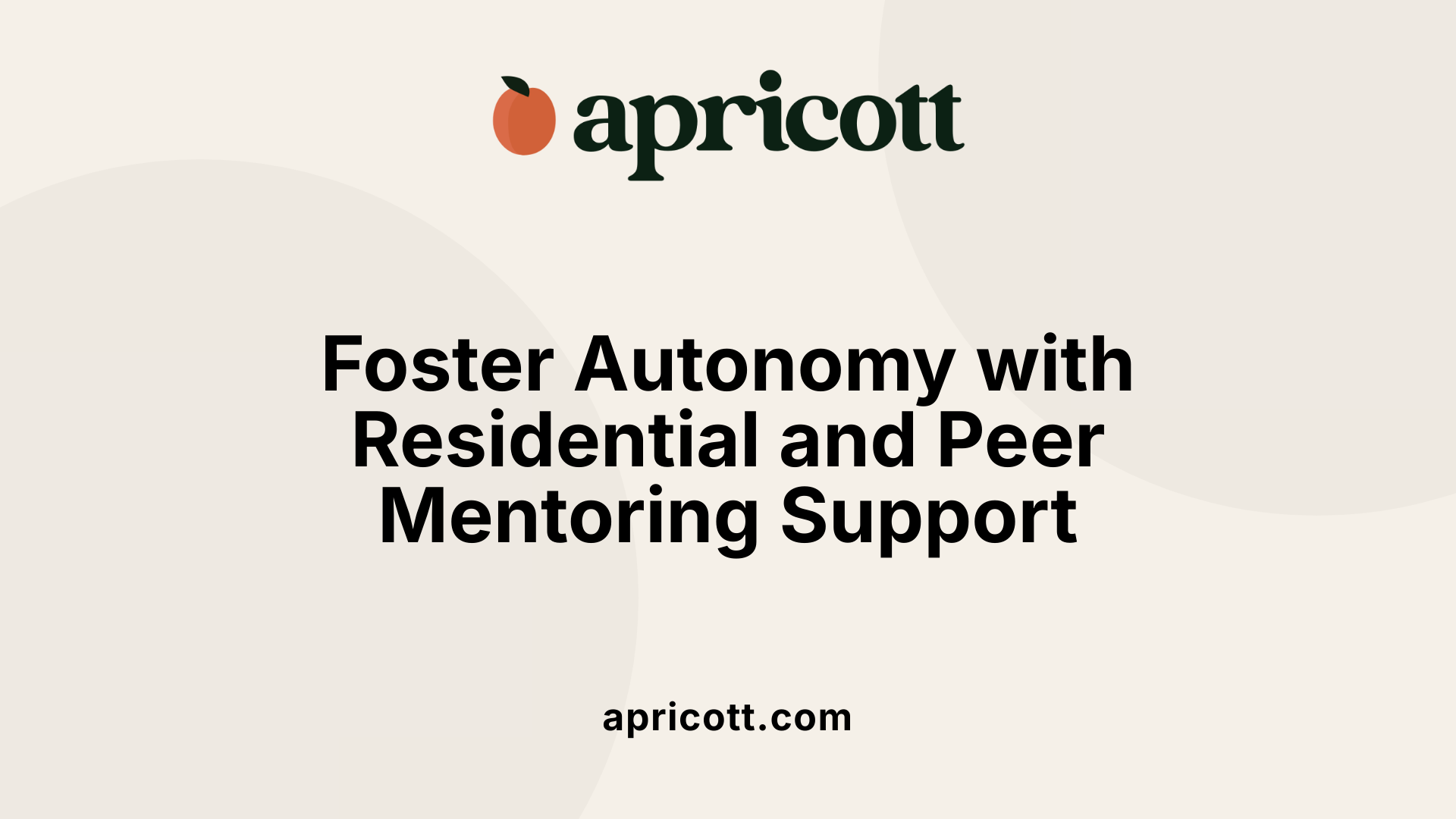
Several universities have developed residence-based support programs that provide structured environments aimed at fostering independence for autistic students. These living arrangements often include peer mentors and trained staff who assist in daily living and skill development.
Peer mentors play a crucial role in these programs, offering guidance, companionship, and social support to students with autism. This peer involvement helps students navigate campus life, build friendships, and gain confidence.
These programs are designed to promote student autonomy by encouraging responsible living skills and active participation in campus life. Social activities and group sessions often focus on enhancing communication, decision-making, and problem-solving.
Midwestern State University offers a support program where students with autism live in specially designated residences accompanied by peer mentors and staff support to encourage independence. Similarly, Golden West College’s Comprehensive Autism Program (CAP) includes social-emotional counseling and career guidance within a supportive community setting. The University of West Florida’s Argos for Autism program provides weekly coaching in academics and life skills integrated with community involvement.
These residence-based initiatives, combined with peer mentor involvement, form a strong foundation for autistic students to thrive both academically and socially, fostering essential life skills for post-college success.
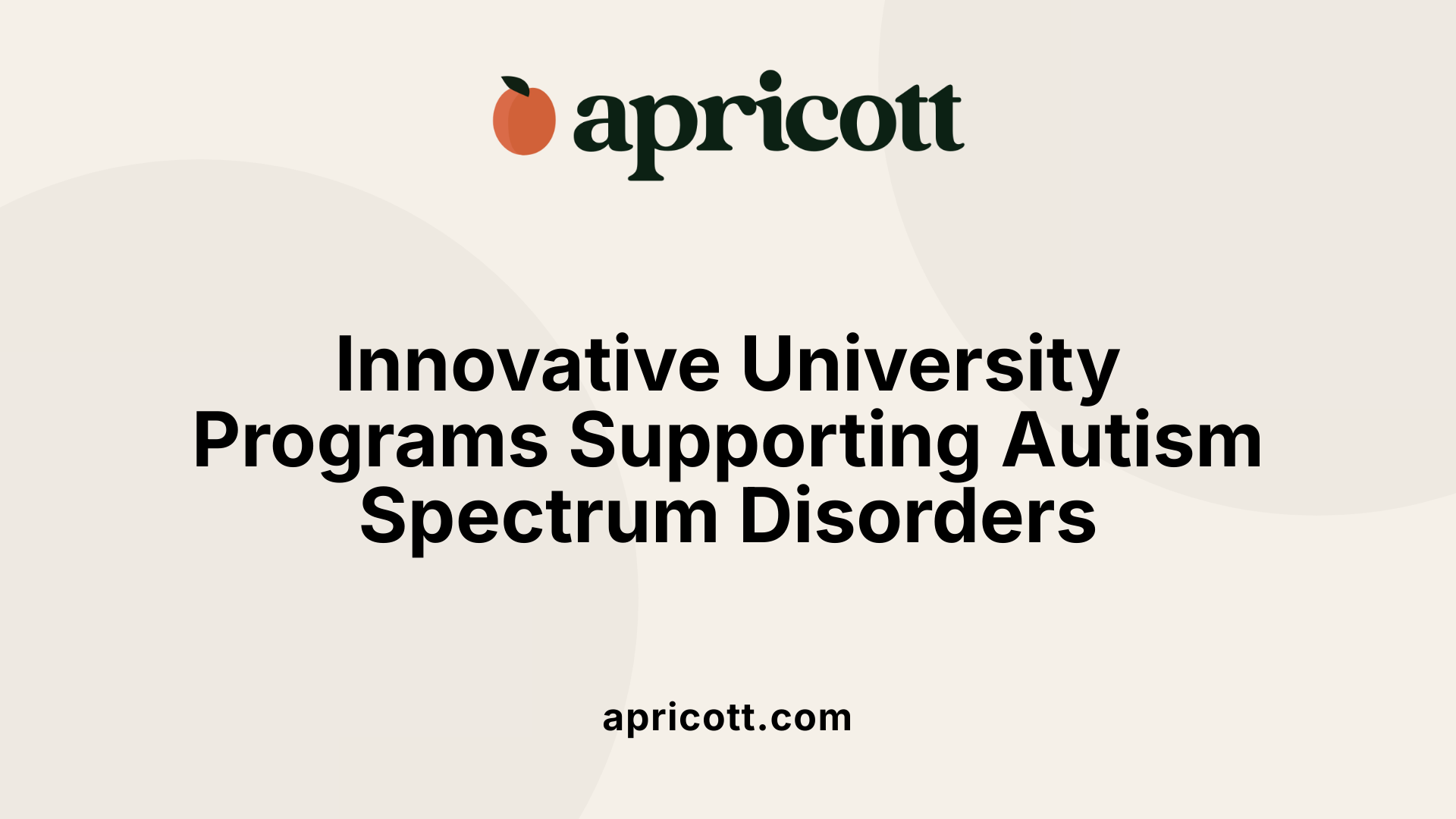
Drexel University offers the Drexel Autism Support Program (DASP), a well-rounded initiative designed to aid autistic students in adapting to college life. The program includes peer mentor training, personalized advisor support, and specialized classes aimed at fostering academic success and social integration.
Rutgers University's Douglass Developmental Disabilities Center provides extensive assistance through accommodations in the classroom and focused socializing guidance. It also offers the Asperger’s Disorder College Program, which helps students with goal setting, campus orientation, and enhancing social skills essential for college success.
Emory University supports autistic students through the Emory Oaks Program, a unique initiative involving regular meetings between students and a dedicated Support Navigator. This approach ensures personalized guidance and assistance for navigating academic and social challenges in the university environment.
Many universities integrate multiple facets of support to holistically assist autistic students. Programs frequently combine academic coaching, social skills training, and peer mentoring with career development resources. This integration helps develop students' executive functioning, self-advocacy, and independent living skills. Group therapy sessions, structured activities, and on-campus engagement opportunities further enhance social interaction and student independence.
These programs acknowledge the diverse needs of students on the autism spectrum and tailor services accordingly, promoting personal growth and academic achievement simultaneously.
As the understanding of autism deepens, colleges and universities are increasingly committing to providing specialized programs and services that meet the diverse needs of autistic students. From evidence-based therapies like ABA to comprehensive academic, social, and residential support, these initiatives foster environments that encourage growth, independence, and academic achievement. Whether through low-cost programs or extensive support frameworks, students with autism now have more pathways than ever to successfully navigate college life. By continuing to expand and refine these resources, institutions play a crucial role in empowering autistic individuals to realize their full potential and contribute meaningfully to their communities.